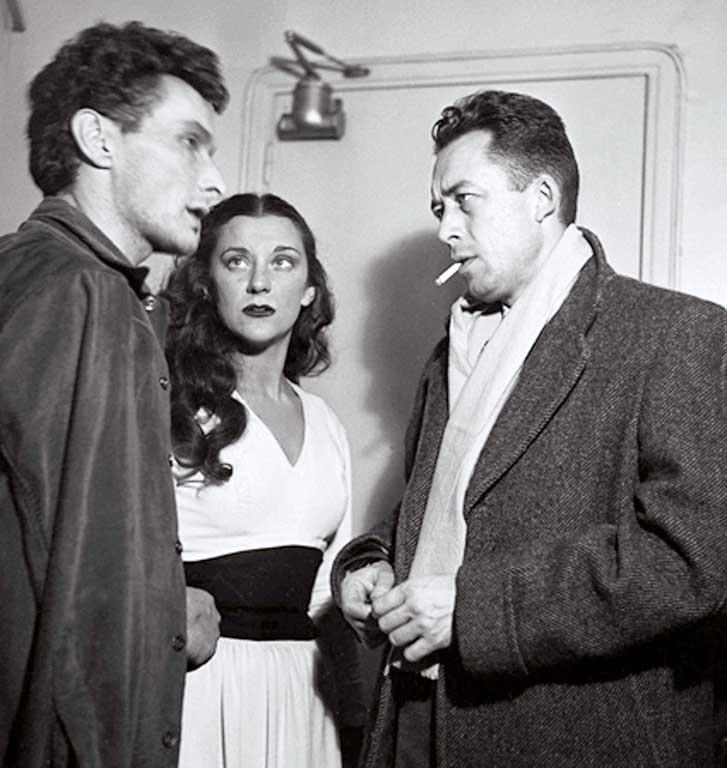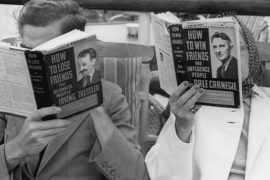Born on 7 November 1913, Albert Camus was a famous French philosopher, Nobel Prize winning author, and journalist well known for his brand of existentialist absurdism and for authoring books such as “L’Etranger” (The Stranger) and “La Peste” (The Plague). His answer to life was a bit poignant and depressing. He thought that life had no meaning, that nothing could ever serve as a source of meaning which then makes the human quest to find meaning kind of absurd. Possibly this absurd way of viewing life was to blame for his chaotic affairs and complicated romantic entanglements.

A charismatic and charming yet sensitive writer, Camus was highly critical of himself especially when it came to his affairs but this sense of self awareness did not stop him from acting on his impulses. In 1935 he married Simone Hié, but the marriage soon fizzled out due to infidelities from both sides and then in 1940 Camus married Francine Faure, a pianist and mathematician. Despite marrying twice, he had argued ardently against the institution of marriage, dismissing it as unnatural and had joked about not being cut out for marriage even after his wife gave birth to their twins- Catherine and Jean in 1945.

Camus seen here with Maria Casares
French biographer Olivier Todd’s book on Camus “Albert Camus: A life” reveals how his obsessive womanising pushed Francine to a depressive mental breakdown. One episode even reveals how he wrote passionate love letters to three different mistresses- one to a twenty-one year old model named “Mi”, another to a Spanish actress Maria Casares, and one to another, younger actress, Catherine Sellers on consecutive days during the same family holiday. His relationship with Maria Casares especially bothered his wife who was hospitalized multiple times for depression. Even when he was about to be married, he carried on with his affairs, sending heartfelt letters to his mistresses as if he was a young hopeless romantic, using words so soft and deep that one could easily forget that this man’s heart belonged to multiple women. From early on, Camus’ intimate circle was mostly female, once writing to a lover “People attract me in so far as they are impassioned about life and avid for happiness, which is perhaps why I have more women friends than men.” However, his commitment to his partnership with his wife Francine was always known to his mistresses and he himself seemed to have cherished it deeply in his own flawed ways even basing a character from his book “The Fall” on her.

As an existentialist, Camus highlights one of the fundamental beliefs of existentialism, that is, humans suffer from alienation and thus cannot ever truly know other people as seen in his book “The Stranger”. Maybe this ‘alienation’ was one of the reasons he consistently tried to find himself in his multiple affairs and fill the void inside him, unable to understand true human connections. Considering the hard life he lived as a child in the slums of Algiers while his mom struggled to make ends meet as his father died early on during the Second World War, it is difficult to not be sympathetic to his plight despite his blunders. Reading about his relationships with his wife and his mistresses comes as a surprise only to people who have not read his earlier works as he had already based his writings on his life. It is however still heart-rending to ponder over the tragic collateral damages caused by his insatiable appetite for validation from various women.






